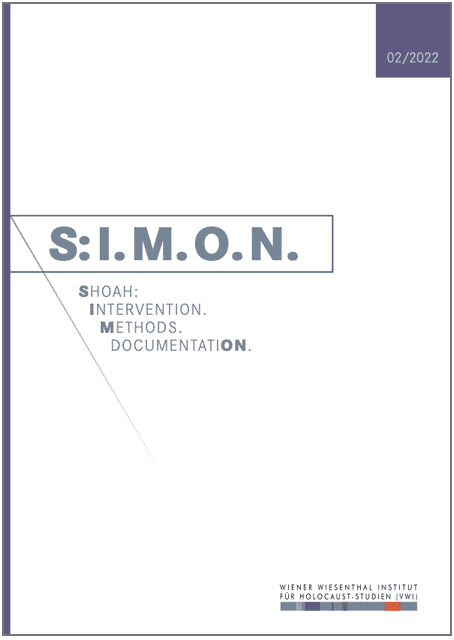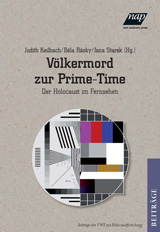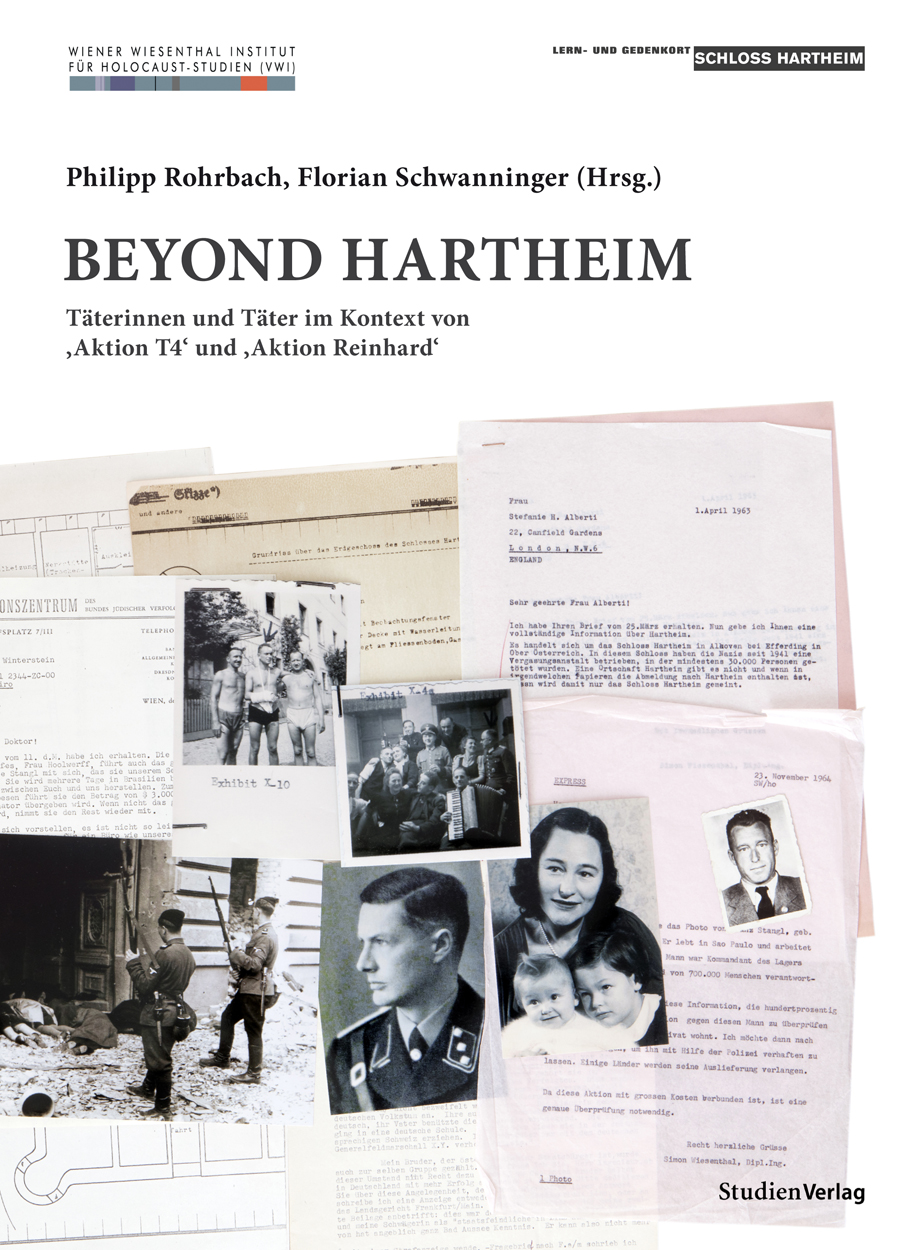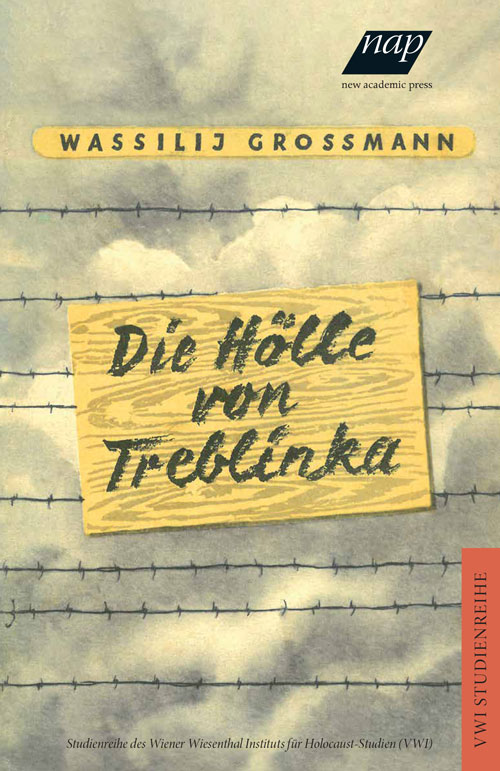Call for Papers:
The Forensic Turn in Holocaust Studies? (Re-)Thinking the Past Through Materiality.
International workshop organised by the Vienna Wiesenthal Institute for Holocaust Studies (VWI)
Vienna, 25-26 June 2015
Click here to download the Call for Papers as a PDF file.
In Holocaust Studies, a new turn seems to advance: after the era of classical written source based historiography and 'the era of the witness' characterised by the paradigmatic role of survivor testimony in Holocaust research and remembrance, a forensic approach comes to the foreground nowadays. In recent years, the sites of the former concentration and extermination camps in Germany, Austria, Poland and beyond, as well as the mass graves at the 'killing sites' spread throughout Eastern Europe, have become the objects of archaeological research, contributing, in this way, to the development of a new subdiscipline, 'Holocaust archaeology.' This discipline becomes crucial where sources and witnesses are not available and enables confrontation of Holocaust deniers with facts. While acknowledging its unquestionable importance for fostering historical research on post-Holocaust landscapes, this workshop seeks to investigate the theoretical, methodological, political and practical implications of the 'forensic turn' for their investigation, memorialisation and experience.
Centred on material traces of genocidal violence, such as spatial structures, physical remnants, mass graves and human remains, the 'forensic turn' could be seen as a response to the gradual passing away of Holocaust victims. At the same time, it reflects broader changes in practical and conceptual approaches to legacies of (genocidal) violence across cultures and geographies brought about by the urge for historiographical, historical, ancestral and personal clarifications, quests for justice or processes of reconciliation in its aftermath. Facilitating exchange between archaeological methods, historiographical research, political interventions, and commemorative practices at the places marked by difficult pasts, the development of genocide and Holocaust archaeologies also necessitates transdisciplinary research on the intersections between their material, spatial, narrative and political dimensions. The interest in materialities and spatialities of genocidal violence opens, therefore, space for new theoretical and ethical questions, methodological perspectives and research topics.
Taking as a vantage point debates surrounding archaeological research at post-Holocaust landscapes, the workshop aims to provide a comparative view of Holocaust archaeologies within a broader framework of the 'forensic turn' in Europe and beyond. The reflection on former Yugoslavian, Spanish or Greek examples, as well as on the outcomes of the excavations undertaken, for instance, in Cambodia or in Stalinist sites of mass murder, could possibly contribute to the critical elaboration of the questions arising in the face of these newly investigated sites.
The workshop intends to focus on four questions:
- "Archaeology as a Political Practice" will examine the trajectories of political mobilisation of forensic archaeology in the contexts of mass violence and genocide. It will focus on the actors and agendas involved in archaeological investigations, differentiating between state-sponsored and civil society or human rights activism initiatives. The panel will look at the restoration of dignity by proper burial as a part of transitional justice processes, trace those processes, which intend to bring to light long, repressed and submerged histories, and ask about the political means of instrumentalisation of the dead.
- "Contested Methodologies" will explore practical, legal and religious issues related to exhumations, forensic practices and archaeological research. It will inquire about national differences between jurisdictions regarding archaeological research, ask about political and religious sensitivities which have to be taken into consideration, and expound problems and differences between methodologies like invasive and noninvasive approaches.
- The panel "Research, Preservation, Memorialisation" will focus on the conflict zones made up by various approaches to the material remains of genocidal violence. This panel intends to elaborate on legal and technical uses of human remains, like exhumation, exposition, and reburial. It will focus on tensions between the processes of museification and the practical uses of the sites, as well as between archaeological research and commemorative projects.
- “Ethics and Aesthetics” will discuss the ethical issues surrounding excavations, exhumations, disinterment, reburial and the restoration of dignity of the dead. It will also deal with forms, mediums and possibilities of presenting and exhibiting archaeologically retrieved remnants and objects on the one hand, and the outcomes of the archaeological research on the other. The role of artistic practices and interventions within the framework of the ‘forensic turn’ will also be analysed.
The workshop organisers are inviting suggestions for discussion contributions on the subject of the questions cited above, contributions that intervene in the existing mind-sets and practices and create an awareness of existing logics and routines in order to open these up, or new perspectives and reformulations.
The workshop languages will be German and English. The costs for accommodation will be covered by the organisers. The organisers' ability to cover travel costs is also subject to current efforts to raise separate funding.
Please submit your applications in German or in English (including an abstract of the topic of your contribution of at most 3,500 characters as well as a short biography) under the subject line "Workshop 2015" by 30 April, 2015 to:
This email address is being protected from spambots. You need JavaScript enabled to view it.
The contributions at the workshop should last no longer than 20 minutes. A jury appointed by the organisers will make the decision on the acceptance of proposals. You will receive an immediate confirmation of the receipt of your proposal. If you do not receive a confirmation, please send a reminder.
Organisation: Vienna Wiesenthal Institute for Holocaust Studies










